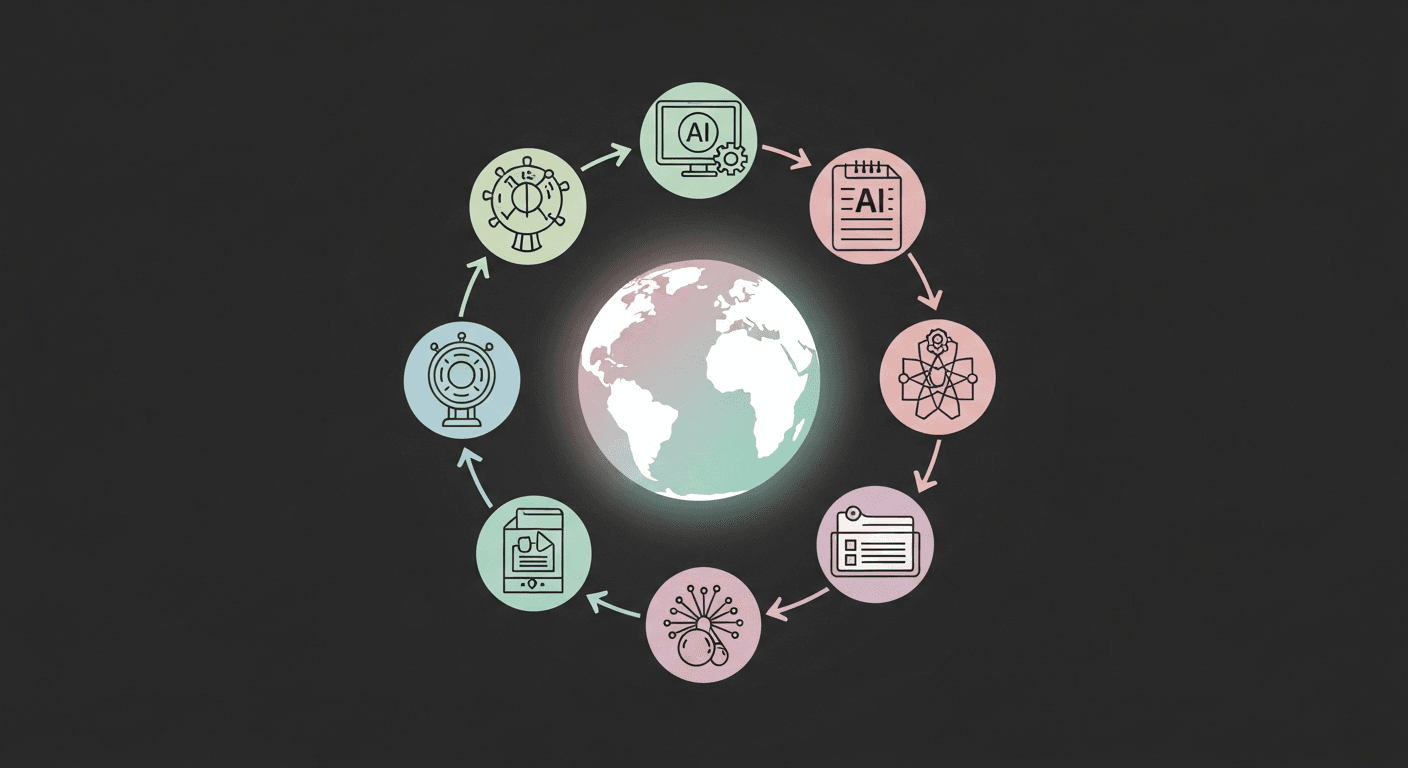Why Meta Hiring a Top OpenAI Researcher Could Reshape AI Reasoning

Why Meta Hiring a Top OpenAI Researcher Could Reshape AI Reasoning
Meta has hired a senior researcher from OpenAI to focus on AI reasoning models. This move signals a stronger commitment to developing systems that can plan, solve complex problems, and explain their reasoning. Beyond just a headline about talent acquisition, this shift has important implications for how quickly next-generation AI systems will emerge and who will drive that progress. (Source: TechCrunch via Google News)
What This Move Means, at a Glance
- Meta is intensifying its focus on AI reasoning, moving beyond just larger text generators.
- Expect increased emphasis on step-by-step problem-solving, tool utilization, and verification processes.
- Llama models may develop enhanced capabilities in logical reasoning, mathematics, and planning.
- The open-source ecosystem could benefit if Meta incorporates advancements in reasoning into public Llama releases.
Reasoning Models: Why They Matter Now
While large language models (LLMs) excel at generating fluent text, they often struggle with tasks requiring careful reasoning, like complex mathematics, coding, planning, or multi-step analyses. Reasoning models aim to improve this by dedicating more computational resources to thinking, breaking down problems into manageable steps, verifying their work, and effectively leveraging tools or external knowledge bases. OpenAI highlighted this shift in 2024 with its o1 family designed to reflect before responding, showing enhanced performance on math and science benchmarks while not exposing users to the full thought process (OpenAI).
Meta is building state-of-the-art open models with the Llama series and aims to enhance reasoning capabilities and safety measures for enterprise applications. Llama 3 has already improved knowledge and coding abilities, paving the way for advanced reasoning and tool integration across Meta’s products (Meta AI).
Why Meta Hiring a Senior OpenAI Researcher Is Significant
Attracting top AI talent is crucial because breakthroughs in reasoning often come from a combination of model scaling, data curation, training objectives, evaluation methods, and tooling. Researchers with expertise in these areas can expedite progress by applying insights gained from previous projects.
This hire indicates that Meta is determined to compete directly in the rapidly evolving reasoning space rather than merely focusing on general chat models. It also underscores Meta’s hybrid strategy: developing powerful models for broad integration while maintaining an open-source track that encourages community innovation.
Signals to Watch from Meta
- Updates highlighting process-based training or self-verification, beyond just increasing parameter counts.
- Improvements in benchmarks related to math, coding, planning, and scientific reasoning (e.g., GSM8K and MATH) showing consistent advancements.
- Closer integrations between Llama-based assistants and tools like code interpreters, retrieval systems, and structured planning APIs.
- Safer deployment practices to reduce errors and enhance factual accuracy during reasoning-heavy tasks.
How Reasoning Models Differ from Standard LLMs
Reasoning models combine specific architectural choices with strategic training and inference techniques. Here are a few notable differences:
- Test-time computations and deliberate reasoning steps – These models invest extra tokens and time to think before producing an answer, often involving internal sampling of reasoning for safety and user experience reasons (OpenAI).
- Process supervision and verifiers – Instead of merely rewarding a final answer, training can incentivize the quality of reasoning steps, complemented by separate verifiers that assess solutions (OpenAI Research).
- Tool utilization and planning – Reasoning models increasingly call upon tools, execute code, query databases, and plan multi-step actions before delivering results (Wei et al., Chain-of-Thought).
- Evaluation beyond mere fluency – Benchmarks like GSM8K and MATH focus on multi-step problem-solving rather than just accuracy of expression (Cobbe et al., GSM8K).
Collectively, these techniques aim to create models that are more dependable on tasks where accurate reasoning takes precedence over simply sounding confident.
What This Could Mean for Llama and the Open Ecosystem
Meta’s Llama models have been instrumental in nurturing a vibrant open-source ecosystem. If Meta enhances Llama’s reasoning capabilities and evaluation rigor, we might see:
- Open models achieving significantly improved performance in terms of math, coding, and planning.
- Community toolchains developing standards for verifiers, graders, and process evaluations.
- Safer and more predictable behavior thanks to improved self-monitoring and tool usage.
- Wider enterprise adoption if reasoning quality closes the gap with leading proprietary models.
As open models are frequently fine-tuned and integrated into various products, enhancements at the foundational model level tend to propagate rapidly throughout the ecosystem.
Challenges and Open Questions
- Data Quality and Labeling – High-quality reasoning traces that detail step-by-step logic are scarce and costly to produce.
- Compute Costs – Engaging in deliberate reasoning often raises inference costs and latency, which can be challenging to scale.
- Safety and Alignment – Enhanced reasoning can also amplify model capabilities; therefore, robust safeguards are crucial during deployment.
- Evaluation Drift – There is a risk of benchmark overfitting; conducting real-world tests that account for distribution shifts is vital.
- Intellectual Property and Openness – Balancing open releases with proprietary safety and verification tools presents complex challenges.
How to Evaluate Progress in Reasoning Models
If you’re a practitioner or decision-maker, here are practical ways to monitor genuine advancements:
- Look for clear benchmark reporting across various tasks: math (GSM8K, MATH), coding (HumanEval, MBPP), and planning or tool usage.
- Examine latency and cost trade-offs when models engage in deliberate or multi-step reasoning.
- Evaluate reliability under pressure: test with adversarial prompts, long context tasks, and ambiguous queries.
- Validate with your own data: conduct narrow, representative workloads instead of relying solely on leaderboards.
- Monitor safety metrics: track results from red-teaming efforts, refusal behaviors under adverse conditions, and rates of hallucination.
The Bottom Line
Meta’s decision to hire a senior OpenAI researcher isn’t just a talent acquisition; it’s a signal that major players see reasoning as the next key competitive area. If Meta leverages this expertise effectively within Llama and its AI offerings, we can anticipate swifter progress in step-by-step problem-solving, enhanced tool-assisted workflows, and more robust verification processes. For developers and businesses, this could lead to AI systems that not only communicate eloquently but also demonstrate solid competence where it matters most.
FAQs
What is an AI reasoning model?
An AI reasoning model dedicates additional computational resources and structure towards solving problems. It typically thinks in steps, verifies intermediate outputs, and may use tools or code before arriving at an answer, enhancing accuracy for more complex tasks.
How is this different from a standard LLM?
Standard LLMs generate the next token based on patterns in the training data. Reasoning-focused models incorporate deliberate thinking, verification steps, and tool usage to reduce errors and tackle multi-step problems more reliably.
Why does Meta’s hire matter?
Bringing on experienced researchers accelerates practical advancements in training, evaluation, and safety. This can significantly enhance Llama and the broader open ecosystem, especially if innovative methods are shared publicly.
Will reasoning models be slower or more expensive?
Generally yes, because they require more time for thinking during inference. Many systems offer options to toggle between fast and deliberate modes, or utilize verifiers only when necessary.
How should businesses evaluate these models?
Test the models on real, measurable tasks, compare the trade-offs between cost, latency, and quality, and monitor for consistent improvements across math, coding, and planning benchmarks.
Sources
- TechCrunch – Meta Hires Key OpenAI Researcher to Work on AI Reasoning Models
- OpenAI – Introducing OpenAI o1 (Reasoning-Focused Model Family)
- OpenAI Research – Process Supervision
- Meta AI – Llama 3 Announcement
- Wei et al. (2022) – Chain-of-Thought Prompting Elicits Reasoning in LLMs
- Cobbe et al. (2021) – Training Verifiers to Solve Math Word Problems (GSM8K)
Thank You for Reading this Blog and See You Soon! 🙏 👋
Let's connect 🚀
Latest Blogs
Read My Latest Blogs about AI

5 AI Stories Shaping Business Today: Power, Data Debt, Tariffs, Penthouses, and the Context Gap
A clear roundup of 5 AI trends shaping business now: power-hungry data centers, data debt, AI for tariffs, luxury sales with AI, and the context gap — with takeaways.
Read more


